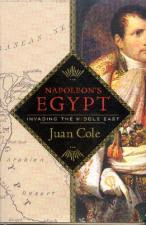Log 13.12 [FR] Alger, ville martyre

Alger, 11 décembre 2007: 2 actes terroristes simultanés
Une deuxième fois, le Groupement des Islamistes algériens, récemment adhéré à Al-Quaeda, a frappé la ville d'Alger. Deux "martyrs contre les croisés et les apôtres" ont fait exploser leurs voitures piégées d'une charge explosive de 800 KGs. L'un contre un bus transportant des étudiants à Ben Aknoun (72 morts et bressés). L'autre, visant deux bureaux des Nations Unies, a tué 11 employés de l'ONU, plus un nombre encore inconnu d'autres.
La première série d'attaques terroristes à Alger date du 11 avril 2007 - (Voir mon article Attaques d'Alger: Solidarité transméditerranéenne demandée, dans ce Journal). Je n'ai aucune hésitation, cette fois-ci, de parler de "terrorisme":
- les cibles ont été choisis quasi par hasard,
- le groupuscule qui est à l'origine, ne représente pas (ou plus) les adhérents à un Islam intégriste,
- le seul but concret qu'on puisse distinguer: semer la peur, la terreur.
Imitation de bagdad-2003?
Si les auteurs des attaques pensent, que les organisations internationales humanitaires, comme la HCRI (Réfugiés) vont se retirer du pays, ils se trompent. L'organisme international des réfugiés ne joue pas un rôle politique à l'intérieur du pays, comme c'était l'intention de la délégation des Nations-Unies à Bagdad, chassée par une attaque meurtrière en 2003. S'ils pensent que le gouvernement algérien se laisse intimider, ils se trompent également: ce gouvernement a gagné une lutte acharnée contre une rébellion terroriste beaucoup plus vaste que la leur et qui a duré dix ans. Quoi qu'on puisse dire sur les méthodes violentes et impitoyables employées par l'armée contre les insurgents de l'époque, en Algérie, il ne s'agit pas d'un gouvernement minoritaire et généralement haï, comme celui de Saddam Houssein.
Les étudiants de Ben Aknoun
Mais je suis encore plus choqué, indigné et perdu, lorsque je pense à l'attaque meurtrière au bus, transportant les étudiants à Ben Aknoun. Les journaux parlent de la présence de la Cour Suprême algérienne dans les environs. Mais rien n'indique que ce bâtiment était visé. Non, les 72 victimes dans le bus étaient des étudiants du collège Ben Aknoun, haut sur la colline d'Alger. Pour quelle raison? Parce que ce sont des fils et des filles de riches? Terreur "aveugle"? Erreur de cible?
Je me souviens de la visite que le président Ahmed Ben Bella payait, en juin 1963, vers la fin des trois jours tumultueux de la conférence, à Ben Aknoun. Les délégués européens échangeaient leurs dernieres hostilités idéologiques dans les salles de classe aux étages supérieures. Ben Bella s'attardait dans le hall central, entouré, presque écrasé, par une foule d'étudiants, qui lui posaient leurs questions et écoutaient ses réponses. Vu d'en haut des galeries, comme la reine d'une fourmillière, entourée par une foule de têtes aux cheveux noirs, coupés court.
C'était l'été des espoirs. Tout semblait possible. Mais les forces obscures n'étaient pas loin. Celles du passé récent: Un leader FLN de Wilaya, qui refusait de quitter ses armes et ses troupes, campait sur une colline avoisinante. Et aussi les forces qui allaient, progressivement à partir de 1965, créer la stagnation et développer la corruption, qui a produit la presque-théocratisation du pays en 1990. Les publications prises sous contrôle, les biens laissés vacants par les "colons" occupés par la nouvelle aristocratie... Quels espoirs avaient les dizaines d'étudiants du bus, tués, blessés, criminellement ce 11 décembre 2007?
Les gens oublés et relégués, leur courage et leur martyre
Le complexe scolaire de Ben Aknoun était entouré de terrains vagues, à l'époque. Après le départ des délégués, je me suis promené une fois au début de la soirée, après la chaleur de l'après-midi, sur ces champs. Dans une petite cabane sur la pente, il y avait de la musique. Quand je passais, l'on m'invita à l'intérieur. Parmi les ruïnes du pays, on célébrait un mariage. L'étranger de passage était le bienvenue. C'était mon premier repas à couscous. Assis par terre, autour des grandes casseroles, les hommes. Les femmes sur les bancs autour. Trois musiciens menaient la danse. Hospitalité, espoir, investissement dans le futur. Un souvenir inoubliable.
Et aussi: L'dée qu'un ou deux des fils des jeunes mariés a pu se trouver parmi les victimes absurdes du bus...
Les théoréticiens de la "lutte des civilisations": Alliés objectifs d'Al-Quaeda!
Et ce que je sens surtout: une rage contre les populistes européens qui se comportent comme les alliés objectifs des terroristes, en reléguant tous ces gens qui ont le courage de se faire une vie décente contre les malheurs qu'ils subissent, en les reléguant, je dis, vers le coin des boucs émissaires des problèmes assez futils notre société occidentale. Pour autant qu'ils soient sincères: C'est une grande erreur historique. La maladie terroriste ne se guérira que par les forces vives dans le corps. Les affaiblir, les criminaliser collectivement: C'est pire qu'une erreur: c'est un crime!
 Huib
Huib
Également publié sur Toto Le Psycho, le 14.12.07.

 [EN]
[EN] [FR]
[FR] [DE]
[DE]






